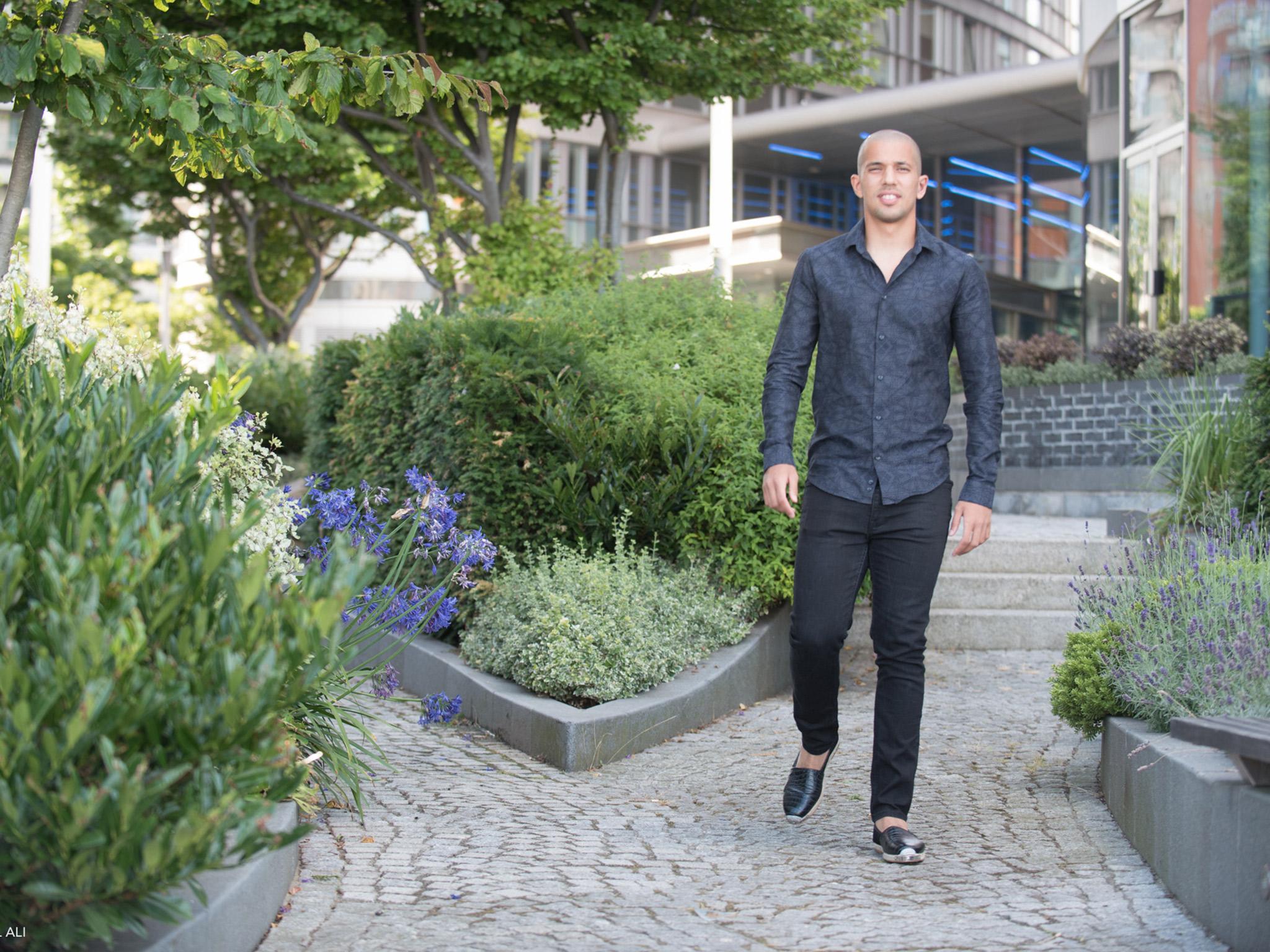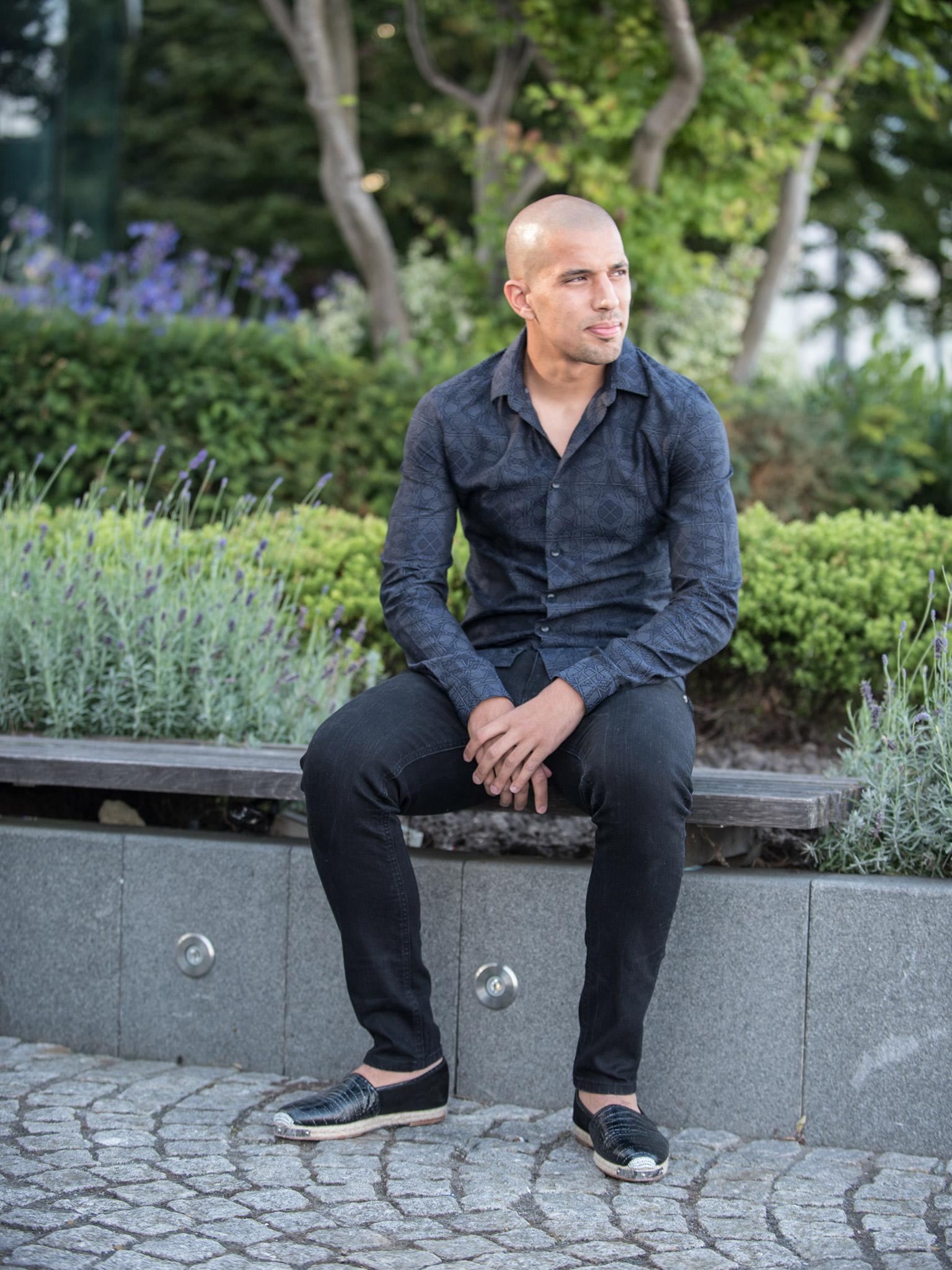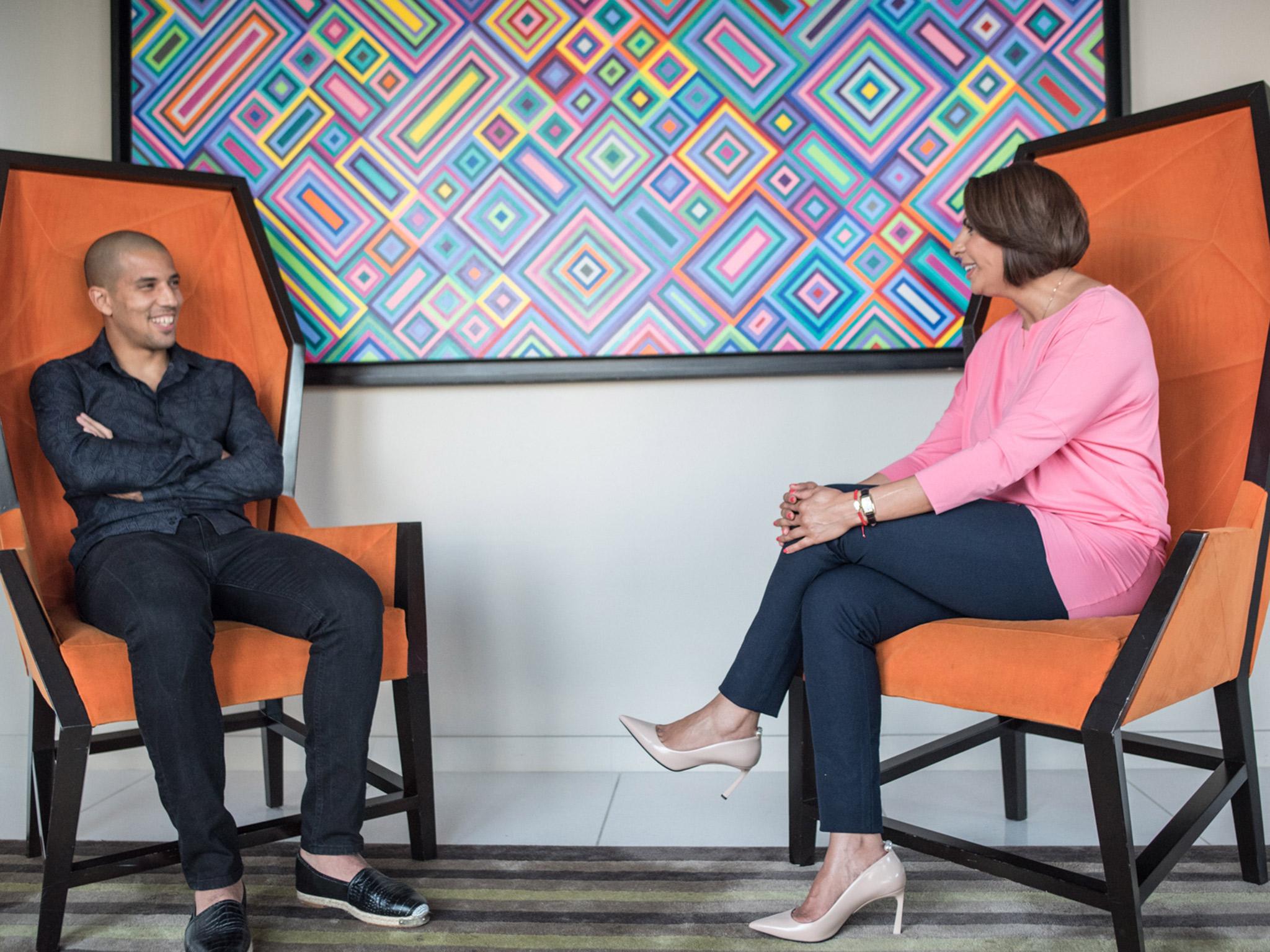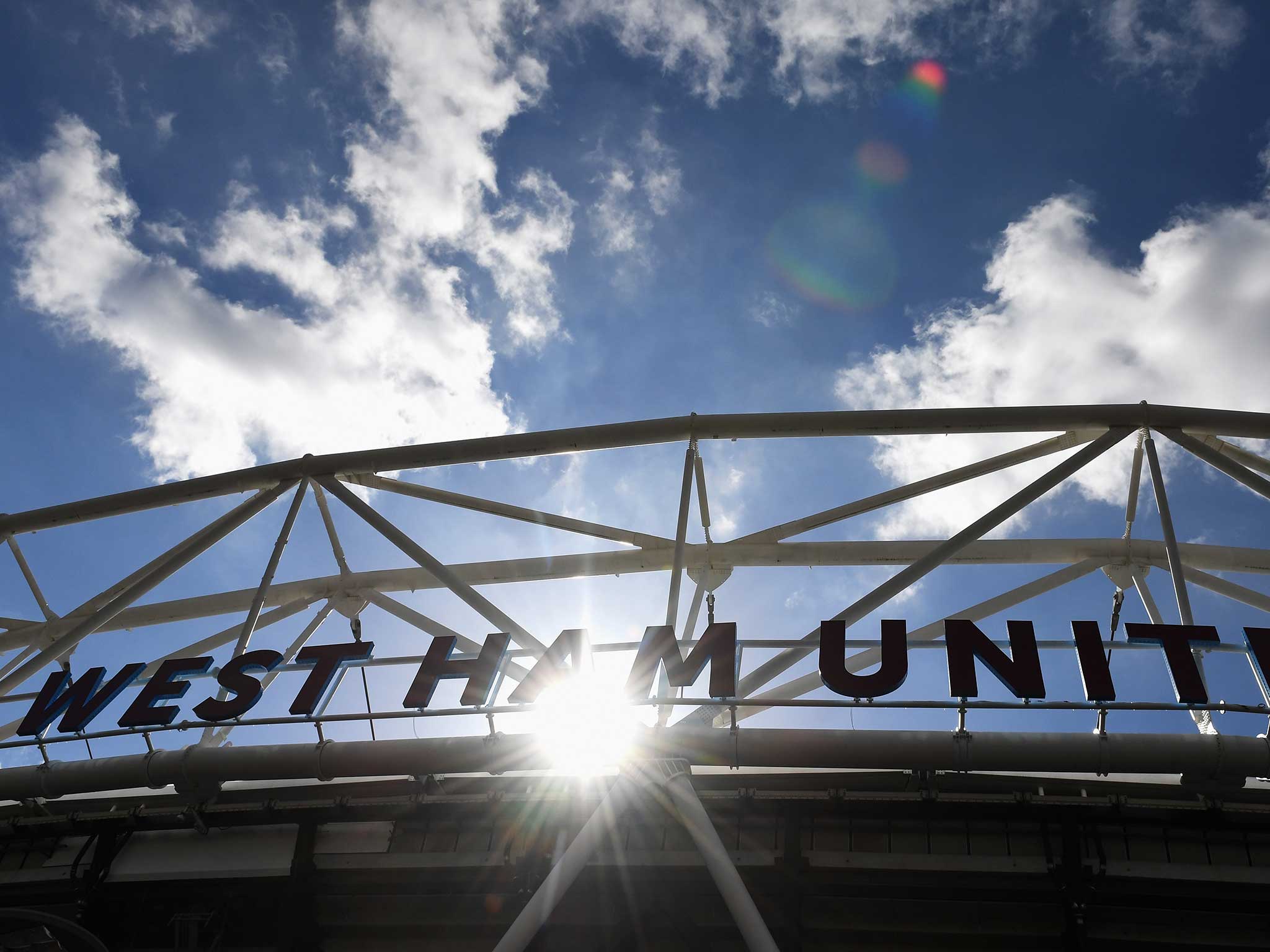West Ham striker Sofiane Feghouli takes pride in combining Muslim faith with playing in the Premier League
Exclusive: West Ham & Algeria’s exciting new winger Sofiane Feghouli speaks for the first time about his pride in being a Muslim Hammer

Your support helps us to tell the story
From reproductive rights to climate change to Big Tech, The Independent is on the ground when the story is developing. Whether it's investigating the financials of Elon Musk's pro-Trump PAC or producing our latest documentary, 'The A Word', which shines a light on the American women fighting for reproductive rights, we know how important it is to parse out the facts from the messaging.
At such a critical moment in US history, we need reporters on the ground. Your donation allows us to keep sending journalists to speak to both sides of the story.
The Independent is trusted by Americans across the entire political spectrum. And unlike many other quality news outlets, we choose not to lock Americans out of our reporting and analysis with paywalls. We believe quality journalism should be available to everyone, paid for by those who can afford it.
Your support makes all the difference.When Sofiane Feghouli scored on his debut for West Ham United at the start of this season he celebrated like Mo Farah: prostrating himself in the Olympic Stadium in London and spending a moment in silent prayer.
As when the running champion won double gold there in 2012, Feghouli’s gesture of reverence during a charged football match was greeted by cheering and rapturous applause.
The overwhelming sense of respect was not lost on the French-Algerian 26-year-old, who is as proud to be a Muslim as he is an elite sportsman.
“British crowds are outstanding – generous, supportive and passionate,” said Feghouli, the hugely exciting winger whom West Ham signed from Valencia, in Spain last month.
“My faith is very important to me, but also very personal. When I pray on the pitch, it is always spontaneous.
“That crowds can accept this, and make a player feel comfortable as he expresses himself with honesty is very touching.”
Feghouli is one of a highly influential group of new Premier League stars who are not just devout Muslims, but also ones who grew up in the less salubrious suburbs of greater Paris.
They include the world’s most expensive player, Paul Pogba of Manchester United, N’Golo Kanté of Chelsea, and Riyad Mahrez of champions Leicester City, who is a great friend of Feghouli’s.
The pair were part of the outstanding Algeria side that gave Germany a scare in the 2014 World Cup, narrowly losing to the eventual champions 2-1 after extra time.

Feghouli, who was the captain of Algeria, is only too well aware of the way young men from similar backgrounds are demonised and discriminated against in France, but knows that perceptions can change.
Meeting him in his temporary home – the Radisson Blu Edwardian Hotel, near West Ham’s new ground – the soft-spoken, highly intelligent sportsman certainly came across as the perfect role model.
“My faith is all part of leading an exemplary life,” said Feghouli. “It’s part of a good lifestyle that teaches me to be respectful of other people at all times, and generally to try and do good in the world.
My faith is all part of leading an exemplary life. It’s part of a good lifestyle that teaches me to be respectful of other people at all times, and generally to try and do good in the world.
“I’m of course very proud to see Muslim players like Riyad doing so well in the Premier League, but they’re not there because they’re Muslims. They’re there because they’re great players.”
Feghouli was born in Levallois-Perret, around five miles from the centre of Paris, and then grew up in nearby Saint-Ouen, in the Seine-Saint-Denis department bordering the capital.
His first club was the semi-professional Red Star, in Saint-Ouen, whom he joined as an eight-year-old, and then he signed as a professional with Grenoble, in the French Alps, when he was 17.
“Football was always my absolute passion, and I wanted to play all the time,” said Feghouli, who has been given the prestigious No. 7 shirt at West Ham.
It was immortalised by iconic players throughout the decades in England, such as Eric Cantona, David Beckham and George Best.

“I was not into music, or films, or any other distractions – when I had time off I would normally get hold of a ball and carry on practicing.
“My career was tough at times – especially in the mountains in winter in Grenoble, but I always felt very privileged to be pursuing my lifetime ambition.”
Like many other French-Algerians, Feghouli chose the green of Algeria over the blue of France, because of “history, and where my heart wanted me to be”.
France’s relationship with its former colony has always been a troubled one. Those born and raised in France with links to the North African country stretching back generations frequently feel more attached to their country of origin than the place where they grew up.
Feghouli’s parents are from Algeria, and he spent many happy childhood holidays there.
“I have plenty of family in Algeria, and love it,” he said. “I of course visit when I am on international duties, but it is also a good place to take a break.”
Feghouli was a schoolboy when France won the World Cup in 1998. He was delighted for Les Bleus, but he believes the country has changed since then.
“The 1998 team was made up of players from all backgrounds, including Algerian,” said Feghouli, the youngest of four brothers.
“Zinedine Zidane, the best player, remains a national hero, and he has inspired a generation, but things have deteriorated.
“The Muslim community is being stigmatised for all the wrong reasons. It is particularly worrying that Islamophobia is rife in mainstream French life. It is an extremely unjust situation, and one that needs to be addressed.”
As an example, Feghouli recalled how his oldest brother, Nabil, used to tell him to avoid the Parc des Princes, where French champions Paris St Germain play, because of racist hooligans.
PSG has since been taken over by Gulf Arabs from Qatar, who have tried to change the club’s image, but there is still a problem with prejudice and hate.
The Muslim community is being stigmatised for all the wrong reasons. It is particularly worrying that Islamophobia is rife in mainstream French life.
Feghouli knows racist elements used to prey on English clubs like West Ham too, as fascist organisations used the terraces as recruiting grounds, and baited black and Asian players.
The club now has a zero-tolerance policy towards any kind of discrimination, clamping down hard on any racist chants or gestures.
“There has been considerable social change in Britain,” said Feghouli. “Players from ethnic and religious minorities are not experiencing racism in the way they used to. There is an openness and tolerance that is hugely impressive.
“Whereas bigotry can still appear acceptable across all strands of society in countries like France and Spain, the situation is far better in Britain.
“Voters in London electing a Muslim mayor is a huge step forward. Not everything is perfect – of course there is plenty of nastiness around – but generally Britain is getting things right.”
Manchester United dominated English football when Feghouli was growing up, but the big sides in the capital fascinated him.

“The London derbies were ones we had to watch,” he said. “There was always an epic intensity to them. I was very impressed by West Ham’s fighting spirit. They never gave up.
“All of that helped to convince me that they were the team to join at this stage of my career.”
Feghouli has a strong sense of history, and has read up on the Hammers who passed into folklore after having such a decisive role in England winning the World Cup in 1966.
Captain Bobby Moore, midfielder Martin Peters and hat-trick hero Sir Geoff Hurst saw the Three Lions to glory at Wembley 50 years ago, when they beat West Germany 4-2 after extra time.
The game makes him think of how close his Algeria side came to beating the world champions in extra time in 2014, but he knows that the “West Ham World Cup winners” are now the stuff of legend.

“They are a major part of the West Ham legacy, and everybody is reminiscing over it on the 50th anniversary” said Feghouli.
“The club has an incredible history, and the new Olympic Stadium is all part of it.
“Playing in front of 60,000 supporters, most of them West Ham fans, is a massive honour.
“I was delighted to score on my debut, and hope that there will be many more opportunities to do well.”
Beyond Farah, London 2012 also saw Taoufik Makhloufi, the Algerian middle-distance runner, become 1500 meters champion at the Olympics.
The club has an incredible history, and the new Olympic Stadium is all part of it. Playing in front of 60,000 supporters, most of them West Ham fans, is a massive honour.
“I enjoyed that triumph, and have been following this year’s Olympics too,” said Feghouli, who stayed up late to watch Farah’s double gold and Makhloufi take double silver in the 800m and 1500m finals this time around in Brazil.
As he pursues what he hopes will be a long and successful career in the UK, Feghouli believes that the achievements of Algerians like him and Makhloufi will influence others.
“I hope I can inspire young Muslim players in particular to persevere and do their best, and play exceptional football,” said Feghouli.
“There’s what you see on TV – the glitz and the goals – but there’s also very hard work, and seriousness, and talent.
“I see football as a pyramid – there’s a broad base, but very few at the top. Those who succeed are the most determined.”